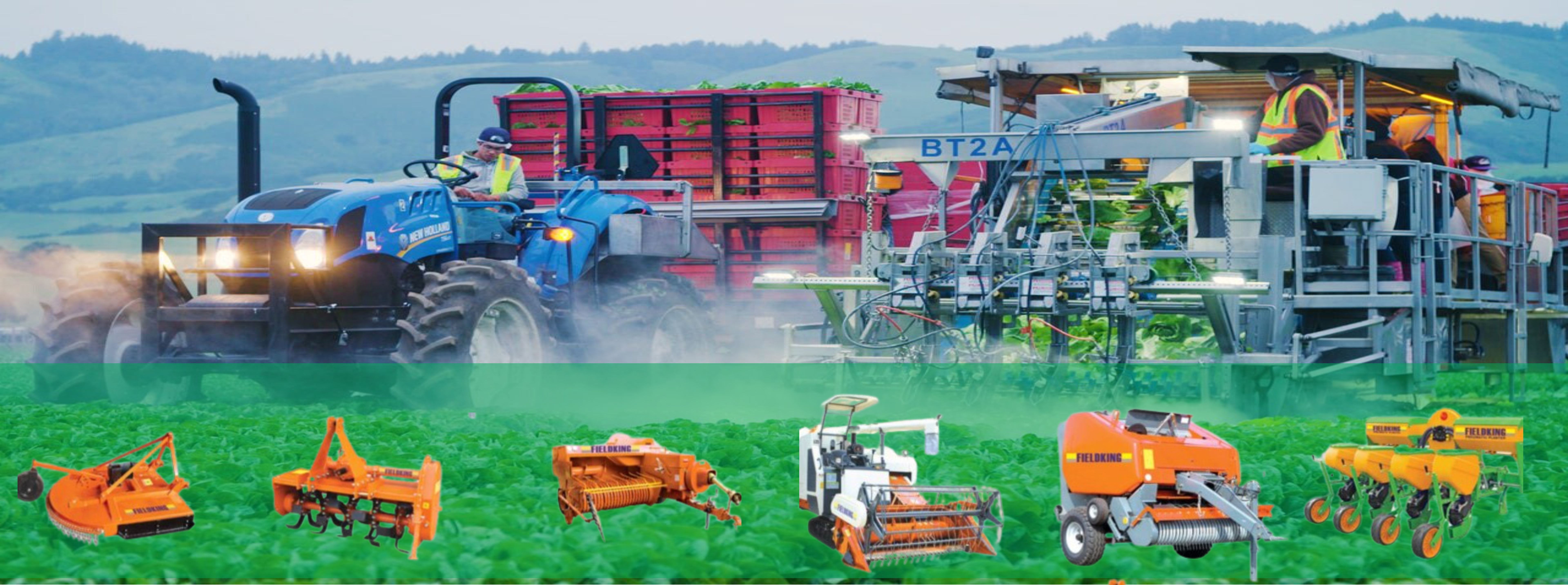
ایگریکلچرل انجینئرنگ، جسے زرعی اور بائیو سسٹم انجینئرنگ بھی کہا جاتا ہے، انجینئرنگ سائنس کے مطالعہ اور اطلاق کا شعبہ ہے اور زراعت کے مقاصد کے لیے اصول وضع کرتا ہے، جس میں مکینیکل، سول، الیکٹریکل، فوڈ سائنس، ماحولیاتی، سافٹ ویئر، اور کیمیکل انجینئرنگ کے مختلف شعبوں کو یکجا کیا جاتا ہے۔ فارموں اور زرعی کاروبار کی کارکردگی کو بہتر بنایا جاتا ہے۔
اہمیت :
زرعی انجینئرنگ بہت اہم ہے کیونکہ یہ کاشتکاری کے طریقوں کی کارکردگی اور پائیداری کو بڑھاتی ہے۔ انجینئرنگ کے اصولوں کو زرعی عمل کے ساتھ مربوط کرکے، یہ مشینری، آبپاشی کے نظام، اور مٹی کے انتظام کو بہتر بناتا ہے، جس سے فصلوں کی پیداوار میں اضافہ، وسائل کا تحفظ، اور ماحولیاتی اثرات میں کمی واقع ہوتی ہے۔ یہ فیلڈ پیداوار اور پروسیسنگ کو بہتر بنانے والی ٹیکنالوجیز کو آگے بڑھا کر فوڈ سیکیورٹی اور دیہی ترقی کی لئے سہولت کار ثابت ہوتا ہے۔
دیگر انجینئرنگ کے شعبوں کے مقابلے میں ایگری انجینئرنگ کی اہمیت کی وجوہات:
-
فوڈ سیکیورٹی
- زرعی انجینئرنگ فصل کی پیداوار اور کاشتکاری کے طریقوں میں کارکردگی کو بہتر بنا کر خوراک کی پیداوار کو براہ راست متاثر کرتی ہے، جو کہ بڑھتی ہوئی عالمی آبادی کو کھانا کھلانے کے لیے ضروری ہے۔
- یہ پانی کے موثر استعمال، مٹی کے انتظام اور توانائی کے تحفظ کے لیے ٹیکنالوجیز تیار کرتا ہے، جو پائیدار زراعت اور وسائل کے انتظام کے لیے اہم ہیں.
- زرعی انجینئرنگ دیہی علاقوں میں بنیادی ڈھانچے اور ٹیکنالوجی کی ترقی میں معاونت کرتی ہے، جس سے معاشی ترقی اور کاشتکاری سے منسلک افراد کے معیار زندگی کو بہتر بنانے میں مدد ملتی ہے۔.
- یہ پائیدار کاشتکاری کے طریقوں کو تشکیل دے کر اور فضلہ اور آلودگی کو کم کرکے ماحولیاتی چیلنجوں سے نمٹتا ہے، جو طویل مدتی ماحولیاتی توازن کے لیے اہم ہے
وسائل کی اصلاح
دیہی ترقی
ماحولیاتی پائیداری
وہ علاقے جہاں زرعی انجینئرنگ اہم ہے:
-
مشینری اور آلات
- کاشتکاری کے کاموں میں کارکردگی اور پیداواری صلاحیت کو بڑھانے کے لیے ٹریکٹرز، ہارویسٹر، اور پودے لگانے والی مشینوں کو ڈیزائن کرنا اور مزید بہتر بنانا۔
- پانی کے استعمال کو بہتر بنانے اور فصل کی نشوونما کو بہتر بنانے کے لیے آبپاشی کے جدید طریقے جیسے "ڈرپ اور چھڑکاؤ کا نظام " تیار کرنا۔
- مٹی کی صحت کو برقرار رکھنے اور پائیدار زراعت کو سپورٹ کرنے کے لیے مٹی کے تحفظ، زرخیزی کو بڑھانے، اور کٹاؤ پر قابو پانے کے طریقوں اور ٹیکنالوجیز کو متعارف کرنا۔
- مختلف زرعی سرگرمیوں میں مدد کے لیے عمارتوں اور بنیادی ڈھانچے جیسے گوداموں، گرین ہاؤسز، اور جانوروں کی رہائش کا ڈیزائن بنانا اور تعمیر کرنا۔
- قابل تجدید توانائی کے ذرائع جیسے شمسی اور ہوا کی طاقت کو زرعی کاموں میں ضم کرنا تاکہ فوسل ایندھن پر انحصار کم ہو اور توانائی کی لاگت کم ہو۔
آبپاشی کے نظام
مٹی کا انتظام
فارم کے ڈھانچے
قابل تجدید توانائی
